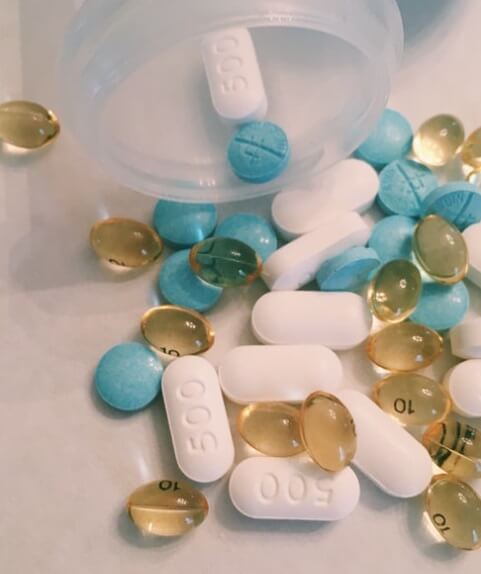A recent report, States with the Biggest Drug Problems in 2017, published in The News & Observer revealed that North Carolina was number 20 on its list. The study compared 15 metrics from arrest and overdose rates to opioid prescriptions and meth lab incidents per capita in all 50 states. Of the more than 40,000 inmates in our state’s prisons, most are there because of drug possession. If you’re arrested for a drug crime in our state you may be charged under a number of statutes, including misdemeanor drug laws, felony drug laws, and felony drug trafficking laws.
If you’ve been charged with any type of drug offense—even simple possession—hiring an experienced lawyer to help defend your charge is extremely important. A conviction for a drug offense on a criminal record has widespread consequences to your future.
Misdemeanor Drug Laws in NC
If you or someone you know has been charged with drug possession, take it seriously. While many consider this a “minor crime,” it can have major consequences, including jail time, lengthy probationary periods, drug screens, fines, administrative costs, and more. State laws are increasingly providing for tough prosecution on drug possession and other drug related offenses and the criminal penalties can, at times, be quite harsh.
North Carolina’s misdemeanor drug laws include, but are not limited to:
Misdemeanor Possession of Drug Paraphernalia: It’s illegal for someone to use, or to possess with intent to use, drug paraphernalia for a variety of purposes, including to conceal an illegal controlled substance other than marijuana. It’s usually classified as a Class 1 misdemeanor.
Misdemeanor Possession of Other Drugs: Drugs include codeine, opium, and other types of narcotics and their salts. Possession of these types of substances may fall under a Class 1 misdemeanor.
Misdemeanor Possession of Marijuana: If the amount of marijuana is more than 0.5 and up to 1.5 ounces, punishment may fall under a Class 1 misdemeanor. If you’re found with less than 0.5 ounces, you face a Class 3 misdemeanor.
Facing the Consequences
The punishment served for misdemeanors in our state will vary based on any prior convictions and into which class the misdemeanor falls. Classes of offenses range from A1 to 3, and prior convictions levels range from I (no prior convictions), II (one to four prior convictions), and III (five or more prior convictions). Consequences for drug use, possession, and distribution in North Carolina can range from fines and no jail time to felony charges and an extensive period of time in prison.
Different types of drugs are categorized into different schedules. The higher the probability of abuse associated with a drug and its level of acceptance for medical use will determine into which schedule it fits.
Each of the misdemeanor classifications will vary based on your intent to distribute, how much of the drug you have in your possession, and in what capacity the drug is found. Each situation is unique and is best explained by an experienced attorney.
First Steps to Take
Hire an Attorney
Whether you are simply under investigation or have been charged, a criminal lawyer with experience in defending drug charges can be of great assistance when navigating your way through the system. He or she will know what tactics have worked in the past for clients charged with similar offenses.
Speak Only to Your Attorney
While you must provide certain information the police so they can identify you—name, date of birth, and address—you are under no obligation to provide answers to any other questions. The police have just one goal when questioning you: To obtain information that will assist them in their investigation, especially a confession. False confessions are one of the leading causes of wrongful convictions.
Your relationship with your attorney is privileged, meaning nothing you say to your lawyer can be repeated to anyone else, including the police or the courts, unless that privilege is waived by you. This privilege can be waived if you bring anyone else into the conversation. For example, if you bring a friend into a meeting with your lawyer, the police and the prosecution can ask that friend what was said in the meeting. Needless to say, if you say anything to anyone other than your criminal lawyer, that person may also be called as a witness against you in your case.
What to Tell the Police
The best answer to a question by the police during interrogation is “I would like a lawyer, please.” The worst answer to a question is a lie. If you say, for example, “I don’t know anything about it,” or, “I am not involved,” and that’s not true, that statement can be used as evidence of a new offence of providing false evidence.
No matter the charge, everyone deserves fair legal representation. Our attorneys will take the time to explain the legal process and make sure you get the treatment and outcome you deserve.
Members of the experienced team at Greene Wilson & Styron can explain your possible outcomes, investigate your offense, and help you avoid the negative consequences you may face. For more information or to schedule a consultation, please contact Greene Wilson & Styron by calling (252) 634-9400 or visiting nctriallawyers.com.
(Sources: The News & Observer; Substance Abuse and Mental Health Services Administration; U.S. Drug Enforcement Administration; and North Carolina Controlled Substances Act.)
